As Arab homicide rate soars, government apathy comes into focus
A failure to prioritize the fight against organized crime, infighting between Arab criminal gangs, and deep-seated societal problems are all part of the problem, say MKs, experts
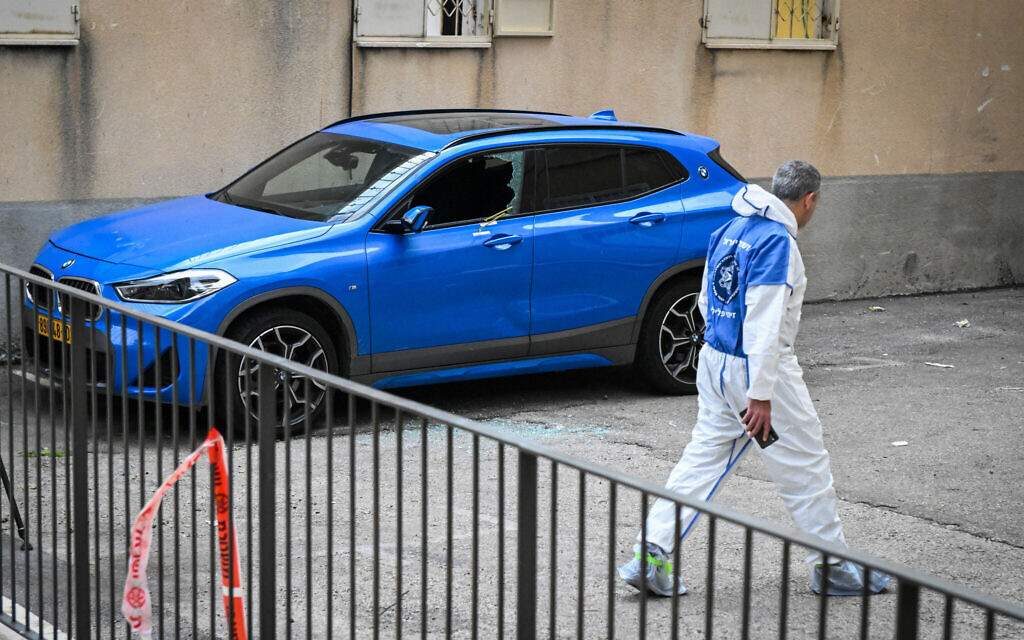
On Monday night, Prime Minister Benjamin Netanyahu met with MKs from the Hadash-Ta’al party to discuss the drastic rise in murders that has beset the Arab community in recent months, underlining the urgency of tackling the problem.
While the politicians were discussing solutions, yet another killing took place, the 91st slaying in the Arab community so far this year according to one tally. At the same time last year, the community had barely suffered a third of that toll.
With a murder occurring every 1.7 days on average, the violence gripping the Arab community has become a major national concern.
Much of the Arab population is living in fear of being caught up in the violence, local leaders say. Many in Arab communities are afraid to leave their homes at night.
The scourge, according to multiple sources, is multifaceted and includes numerous national and societal problems, including the level of determination among the government and police; official neglect of the Arab community; a lack of access to banking services; shortfalls in police manpower; and, somewhat confusingly, the weakening of some large criminal organizations which has allowed smaller gangs to emerge.
On Tuesday, the head of the police unit tasked with fighting crime among Israeli Arabs, Deputy Commissioner Natan Bozna, announced his resignation. No reason for the departure was given by Bozna or the force, and police did not announce a replacement.
The move came a day National Security Minister Itamar Ben Gvir finally announced in a short statement to the press that he would now prioritize the problem and would be appointing a policy czar to oversee the effort, after months of heavy criticism from the opposition for failing to act.
Hours after Ben Gvir, Netanyahu’s office announced following the meeting with Hadash-Ta’al that a committee would be set up, headed by the premier, to tackle the crime wave.
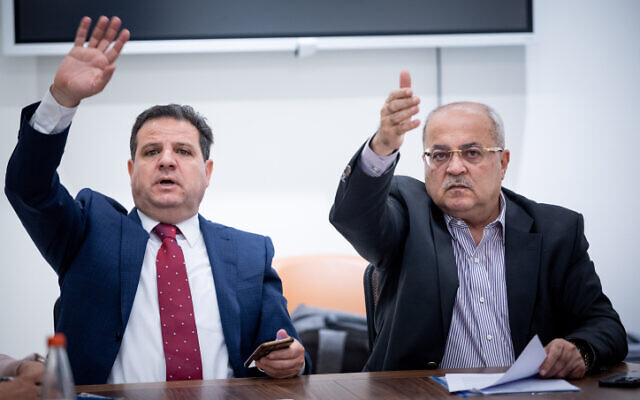
The moves, according to critics, were long overdue,
“Until now under this government, nothing has happened,” said Yesh Atid MK Yoav Segalovitz, a former senior cop who coordinated policy on the issue under the previous government. “The prime minister isn’t in the picture, no ministerial team has been appointed, there has been no policy coordinator, and [there is] no indication that the government has actually been dealing with the problem.”
From a slump to a spike
The number of murders has been rising every year since at least 2018, with the exception of 2022, when it fell by 16 percent.
According to police statistics, in 2018, 74 people were murdered in the Arab community. That number rose to 94 in 2019, 109 in 2020 and spiked to 126 in 2021. It dropped to 116 in 2022, and as of June 6, another 85 slayings had taken place, putting 2023 on track for a death toll topping 200.
The Abraham Initiatives coexistence organization, which has been tracking the rise in crime in the Arab community for several years, has put the number of Arabs killed this year now at 92, with another killing Wednesday evening. The group’s tally, which it publishes each time there is a killing, uses slightly different accounting methods from the police.
Many, but not all, of the killings are committed within the framework of criminal activity run by organized crime groups.
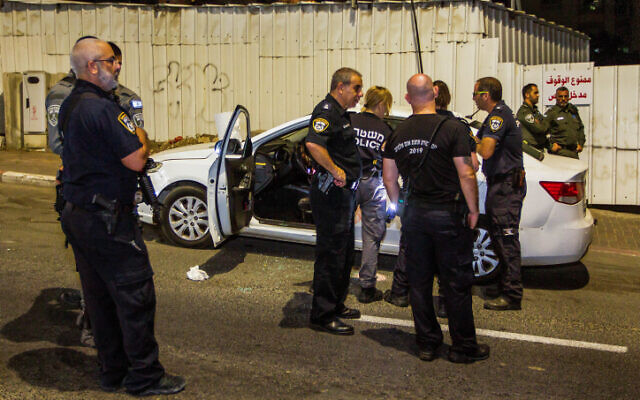
According to the Abraham Initiatives, some 75 percent of murders in the community emanate from organized crime, while 15 percent is attributable to tribal blood feuds, femicides involving family members and the remainder to general criminal activity.
Segalovitz, who served as deputy minister of internal security (now the National Security Ministry) during the last government, credited the drop in homicides last year to Operation Safe Path, a plan launched by the Naftali Bennett-Yair Lapid government specifically to combat the crime wave.
“In the previous government the fight against crime was a central goal,” Segalovitz told The Times of Israel in a recent interview. “There was a designated ministerial team which dealt with the issue, and a policy coordinator was appointed to deal with the problem.”
Segalovitz conceded that the problem did not begin under the current government, but expressed regret that progress made during the tenure of the government he served in has been undone.
“It didn’t begin today, it’s been this way for several years, but things began to change for the better, and now it has stopped and is falling apart,” lamented the MK.
He noted that Operation Safe Path was not just an operational program to tackle crime on the ground but a broad government program to try and eliminate the sources of the rising tide of criminality, specifically organized crime, in Arab society.
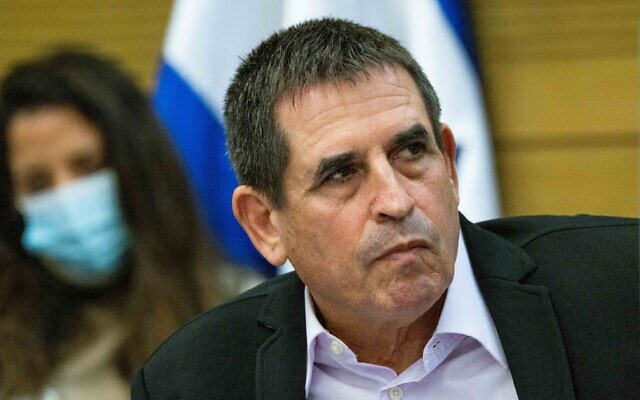
“Can everything be attributed to me? No. But there was a general effort connecting Arab society, the police, the Shin Bet and other government departments,” he said. “I worked not only within the Internal Security Ministry, I had a team in the finance ministry dealing with financial crime headed by the director-general of the ministry, we had an inter-ministerial team which included the ministers of justice, interior, finance, welfare and the prime minister himself.”
“You need to deal with the criminal activity itself and the processes behind it, and neither are being tackled right now,” he added.
The Internal Security Ministry and the police have both stated that Operation Safe Path is continuing, as are other programs designed to tackle the rise in crime, but Segalovitz expressed skepticism that the same energy and motivation is being dedicated to the mission as previously.
“You can’t say that because there was no meeting on Wednesday a murder happened on Thursday, but on the other hand the only thing that has changed in the last 12 months is the government,” he said.
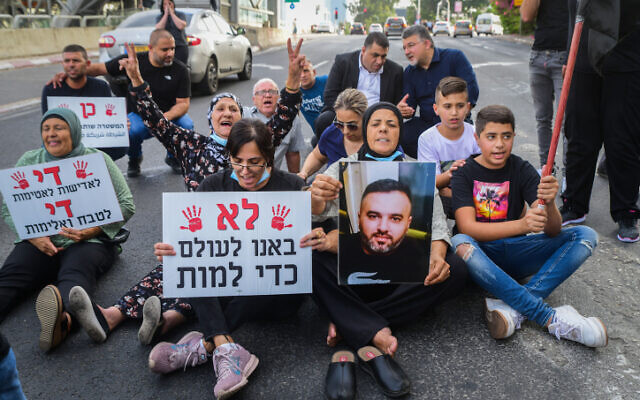
As policy coordinator, Segalovitz would meet with the deputy state attorney and deputy attorney general for criminal law once a week, and met with the heads of Arab local authorities on a regular basis, he said. Interagency cooperation is a key element of the campaign.
“At the sharp end of this problem are the criminals, but you need to dry up the sources of money, you need the cooperation of the finance ministry and the tax authority, you need to take control of the problems in Arab local municipal councils,” said Segalovitz. “If there is no one getting up in the morning who is doing all this complicated work then nothing will happen.”
But a severe obstacle to the cooperation and coordination necessary to fight crime in the community is Ben Gvir himself, according to Segalovitz. The minister faces severe problems gaining the trust of the community, where he is essentially persona non-grata owing to his far-right, ultranationalist background, anti-Arab rhetoric and promotion of policies anathema to Arab society, such as a loyalty test.
That problem was borne out this week as the Arab MKs who met with Netanyahu on Monday night said they were unwilling to accept a policy coordinator appointed by Ben Gvir, requesting that Netanyahu make the appointment himself.
The Arab public “does not have much faith in this particular minister,” veteran MK and member of the Hadash-Ta’al party Ahmed Tibi said with sardonic understatement during a Knesset hearing last month, in reference to Ben Gvir.
“We met with [Segalovitz],” he went on. “We all cooperated, we all wanted him to succeed because his success and your [police] success is in our interest, and that of every mother and father, every teacher, principal, every parent, and every teacher.”

‘Insufficiently disturbed’
Thabet Abu Rass, co-executive director of the Abraham Initiative, noted the multifaceted nature of the challenge will require Israel to go far beyond law enforcement to other areas where the Arab community’s needs are not being met by the state.
“It’s not only about policing, it’s about all arenas and fields in terms of government-provided services,” he said.
At a Knesset Public Security Committee hearing on the issue last month, Tibi accused the government and police of neglecting his constituents, contrasting the response to a recent killing in the southern Bedouin town of Rahat with how police typically react to a killing in the Jewish community.
“Murders in Nazareth and Rahat are different from those in Ra’anana,” said Tibi.
“It cannot be that children can be killed in Rahat and it takes hours before even a police patrol vehicle comes along,” he continued, referencing an incident from April this year. “If there’s a shooting in Herzliya or Netanya the police come immediately. If a Jew gets killed in an Arab town it is also different.”
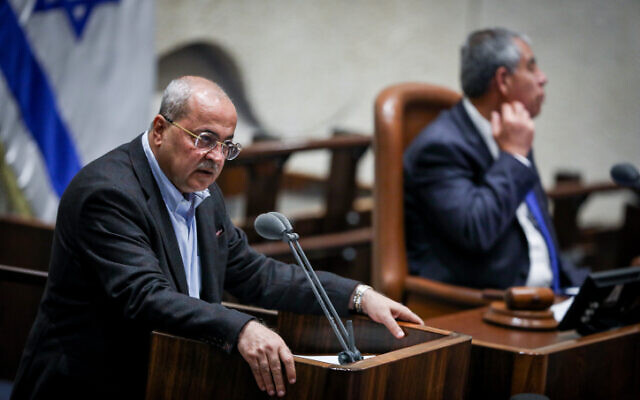
Addressing senior police officials attending the meeting, Tibi admonished them for being “insufficiently disturbed by murders in the Arab community.”
“You know and I know and we all know what would happen if 78 Jews would be murdered one after the other since the beginning of the year,” he said, noting the number of murders at that date.
According to the Knesset Research and Information Center, based on police data, 731 people in Israel were killed violently between 2018 and 2022. Despite the fact that the Arab community comprises just 21 percent of the population, they accounted for 70 percent of the victims.
While the number of Arab killings is growing, among Jews, the homicide rate of 30-35 victims annually has remained mostly steady.
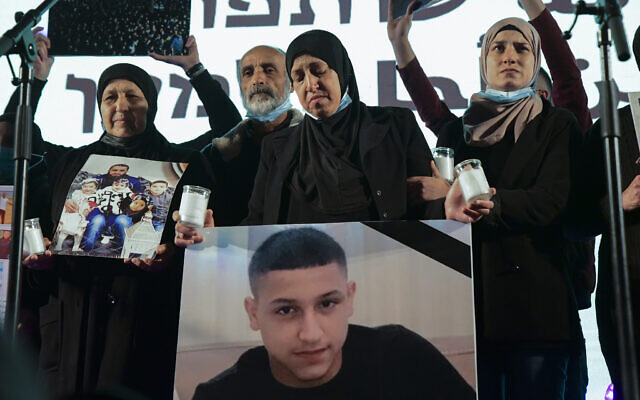
Charges were only filed in 29% of killings in the Arab community over those years, the data showed, compared to 69% for the Jewish community.
Tibi asserted that the low rate of solved cases had fostered a sense of impunity among criminal gangs, emboldening them.
While some ascribe the number of unsolved murders to a lack of cooperation with law enforcement in Arab communities, Abu Rass has noted a dearth of trust for the police among Arabs, making people less likely to be willing to come forward with information.
He pointed to a recently aired leak in which Police Commissioner Kobi Shabtai is heard describing Arabs as inherently murderous in a conversation with Ben Gvir.
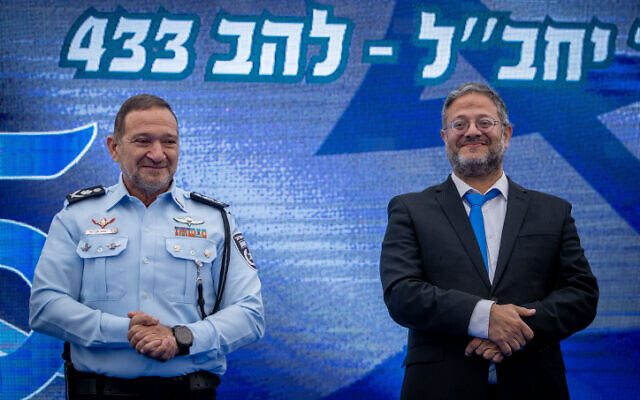
“Mr. Minister, there is nothing that can be done… They kill each other. That is their nature. That is the mentality of the Arabs,” Shabtai said in the leaked recording.
The comment was broadly reflective of police attitudes toward Arab society, Tibi argued, explaining law enforcement’s apathy toward the problem.
Deputy Police Commissioner Superintendent Avshalom Peled, who was also in attendance at the May 15 hearing, insisted that police were working to address the situation.
“We make every effort to educate the police officers that when we work on a murder case we approach it with reverence, regardless of the identity of the victim. [That] it is not about statistics but about a person and the tragedy that follows his murder,” said Peled.
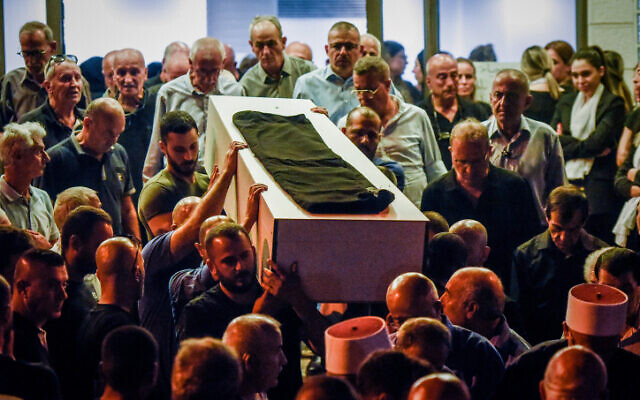
The Israel Police declined a request for an interview with a senior official regarding the efforts to combat the wave of murders, but said in a statement to The Times of Israel that the police were “working around the clock both on the intelligence level in preventing crimes and on the investigative level in solving crimes,” and that “officers are working to build strong relationships with all members of the community, including Israeli Arabs.”
Neither Ben Gvir nor any other senior ministry official attended the hearing, and the ministry declined to grant an interview with senior officials on the issue.
Power vacuum
According to experts, the crime wave is largely being driven by organized crime. A draft report from the Prime Minister’s Office in 2020 came to the same conclusion.
At the May 15 hearing, Tibi claimed that the higher number of murders could be blamed on “a war [that] has broken out” between criminal gangs.
According to Abu Rass, the underworld war was sparked by successful police crackdowns on large gangs last year, which created a power vacuum that is being filled with up-and-comers looking for a slice of the criminal pie.
A chaotic scramble for turf, with groups fighting for control of protection rackets, drug-selling territory and more, has helped drive the uptick in murders, he said.
Crime syndicates are still involved in the classic trades: weapons, drugs, prostitution and protection rackets. But now they also threaten and extort contractors, and they pressure municipalities directly, often by violent means, in attempts to take over development projects, a former law enforcement official told The Times of Israel in 2020.
Organized crime has “penetrated local governments,” Tibi argued last month, counting 15 mayors or local council heads in Arab communities whose lives had been threatened.
“Entire towns are under protection rackets,” he said.
The MK noted that gangs had taken advantage of a paucity of banking services available to Arabs, which has forced people to turn to loan sharks, who offer extortionary rates and exact bloody retribution for unpaid debts.
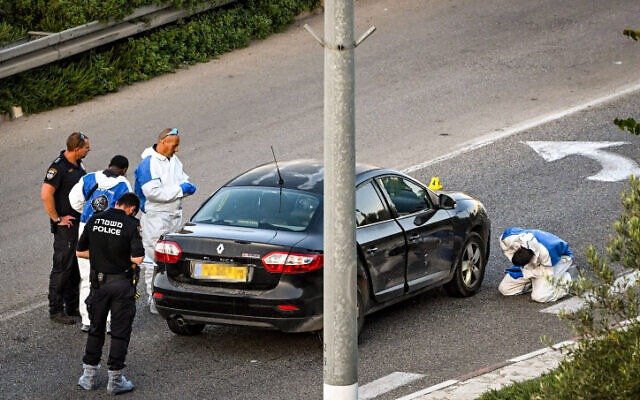
And he highlighted the proliferation of illegal weapons in Arab towns and cities, facilitating the slayings and making it more likely for heated disputes to snowball into deadly firefights. The effort to combat this problem, especially the theft of weapons and firearms from IDF bases, was drastically insufficient, he charged.
Police commander Shmuel Sharvit insisted that police do take the fight against crime in Arab communities seriously, describing a determined effort by officers to combat the violence.
Sharvit said that 26 assassination attempts had been thwarted this year, dozens of people had been arrested under Operation Safe Path, and large quantities of illegal weapons have also been seized, including pistols and M-16 and AK-47 assault rifles.
Regardless of the level of police commitment, manpower issues have hampered law enforcement’s ability to effectively police in some areas.
Abu Rass said he himself has witnessed a reduction in police patrols in his hometown in recent months and an increase in shootings at night which residents no longer bother to report to the police.
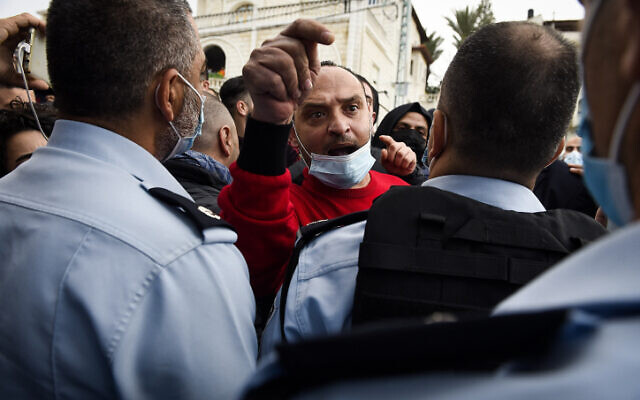
“Police are not putting much effort into fighting crime in Arab sector, they don’t have the power to do so right now,” he said.
The manpower issue is something the Israel Police has highlighted on numerous occasions. During the May 15 Knesset committee hearing, Major-General Yoav Telem, the deputy head of the Intelligence and Investigations Division said the police lacked 2,000 police officers.
On Tuesday, Shabtai told a separate Knesset hearing that police didn’t have the personnel or resources to deal with mob violence of the type that broke out in mixed Jewish-Arab cities during Operation Guardian of the Walls in May 2021.
In Lod, the police force is down some 30%, he said by way of example, urging better pay to attract more officers.
For Segalovitz, Israel’s citizens must be protected from deadly crime or the state has failed.
“Twenty percent of the Israeli population needs to be properly treated by the state [because] today people in Arab towns are scared to leave the house, and that is unthinkable,” he said.
“This is the central contract between the state and its citizens, that people feel safe in their homes, but today the Arab community does not feel safe.”
Abu Rass was in full agreement.
“We need the government to step in and we need the State of Israel to not consider us as an ex-territorial enclave,” he said. “We are an integral part of the state, but the state is simply not functioning here.”
There's no paywall on The Times of Israel, but the journalism we do is costly. As an independent news organization, we are in no way influenced by political or business interests. We rely on readers like you to support our fact-based coverage of Israel and the Jewish world. If you appreciate the integrity of this type of journalism, please join the ToI Community.

We’re really pleased that you’ve read X Times of Israel articles in the past month.
That’s why we started the Times of Israel eleven years ago - to provide discerning readers like you with must-read coverage of Israel and the Jewish world.
So now we have a request. Unlike other news outlets, we haven’t put up a paywall. But as the journalism we do is costly, we invite readers for whom The Times of Israel has become important to help support our work by joining The Times of Israel Community.
For as little as $6 a month you can help support our quality journalism while enjoying The Times of Israel AD-FREE, as well as accessing exclusive content available only to Times of Israel Community members.
Thank you,
David Horovitz, Founding Editor of The Times of Israel









